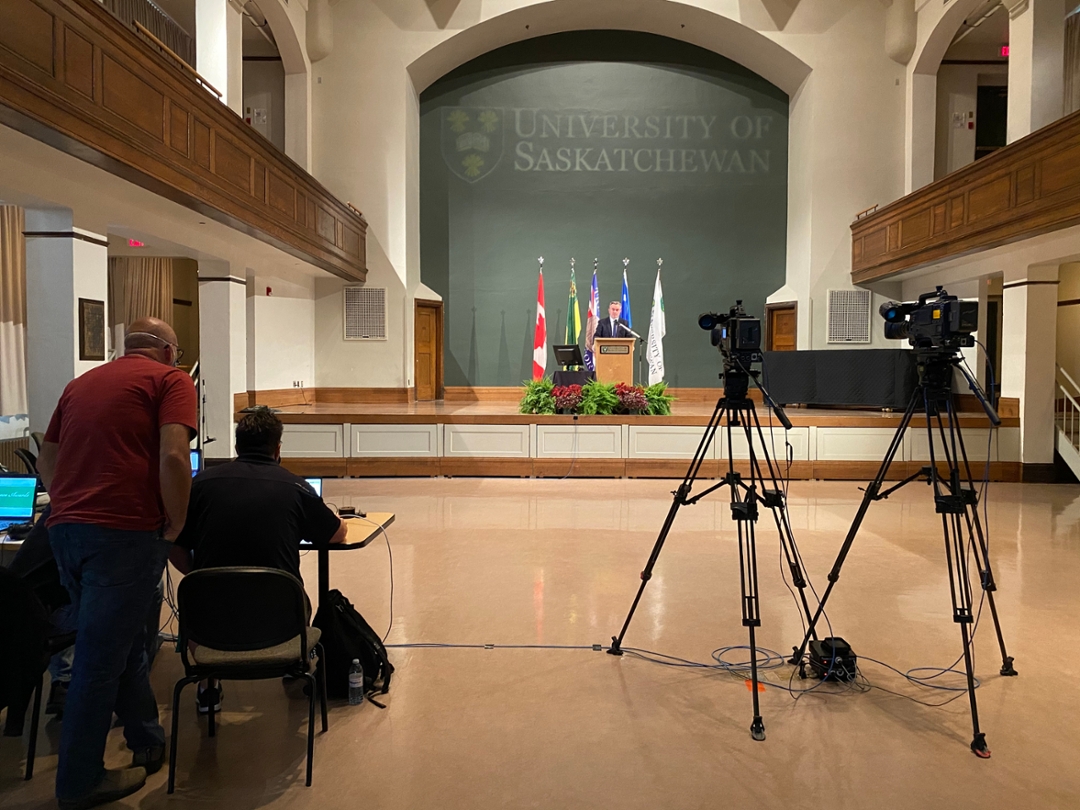
Looking back: Making the shift to online operations
The early days of March 2020 were a stressful time in the College of Law. Following the announcement on March 13 that classes would move to remote delivery, faculty and staff had only three working days to adjust to online courses and another two weeks to prepare for final examinations to be held remotely.
By Sarah TrefiakThroughout the past year, students, faculty and staff have persevered and adjusted so that classes, exams, special events and career opportunities could have some semblance of normal. Here is a look at how it was done and how things are going.
Relearning teaching and learning
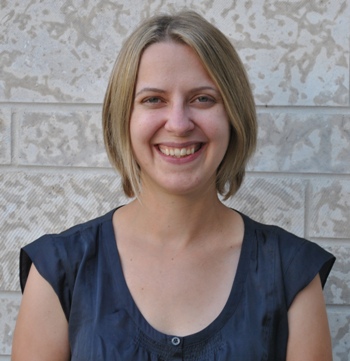
When the college made the decision to adopt a new learning management system called Canvas in May 2016, Professor Tamara Larre welcomed the change with open arms. In her opinion, the previous system used by the college did not have the layout and functionality that was conducive to online learning.
“I had already signed up to be an early adopter and was taking courses through the Gwenna Moss Centre for Teaching and Learning,” she said. “So, I was very pleased when the college was permitted to switch to the system this year.”
Larre estimates she attended at least a dozen sessions on systems like Canvas and WebEx to learn all she could about teaching online and read extensively on the concept of online learning. When it came to building her courses in the system, she found it was a challenge she surprisingly enjoyed, but a challenge nonetheless.
“At first I had a feeling like I didn’t know what I was doing. I had never even taken an online class before,” she explained. “It also was a major time commitment. It involved figuring out so many little things that by the end of each day it felt like I had little to show for all of my work.”
She also worried about the lack of personal connection her students might feel, without seeing her or their classmates face to face.
“The first year of law school is hard, but I knew it would be immeasurably more difficult and less enjoyable without the chance to socialize with other students—to commiserate, if nothing else.”
So Larre made sure to try some new tactics in her courses such as reflective writing, breakout rooms and practice quizzes. She also increased her use of visuals, such as flow charts, and encouraged students to pause the lecture videos as they watched to either submit a question or yell out an answer.
While at first it seemed to Larre that classroom learning was taken away, she now believes online learning provides an even larger range of options, as well as more flexibility for students.
“I was forced to focus on my teaching and really think about what and how to deliver content and help students to learn it. As a result, I received some really positive feedback from my tax law students.”
Larre was quick to acknowledge the support of college staff and her colleagues who discussed online learning at length with her.
“It somehow felt like we really came together to rise to the challenge,” she said. “I am also thankful that the students were so understanding. Their kind comments really kept my spirits up.”
Career office finds new ways to connect employers with students
Job searching for law students is tough on a regular day, but add in a pandemic and fear of the unknown can take over quickly. A number of students had secured summer positions early in 2020 only to see them evaporate rather quickly when the pandemic halted almost every aspect of life in March.
Shari Thompson, the student professional development strategist in the college’s career development office, realized quickly that she would need to find a way for students and employers to virtually connect.
“I embraced tools like LinkedIn, Zoom, and WebEx,” said Thompson. “I am a big believer in modelling what you are asking your students to do.”
With those tools in their pockets, second-year students started to apply for articling positions in April—the first in the country to test the virtual recruitment process.
Beginning in September 2020, first-year students began the process of applying for summer positions, attended professional development sessions, reached out to their upper-year mentors, and booked appointments with Thompson to learn all the tips and tricks around recruitment. In addition, annual career events such as the CBA-SK Firm Showcase, Career Forum and On Campus Interviews were held entirely online.
While the technology and lack of face-to-face interactions presented challenges, not all changes to the career process have been viewed in a negative light.
“Students can now be more mobile and work remote positions,” explained Thompson. “This new virtual world has exposed them to more opportunities, and they now have access to a wider assortment of virtual events than ever before.”
A virtual celebration to welcome new students
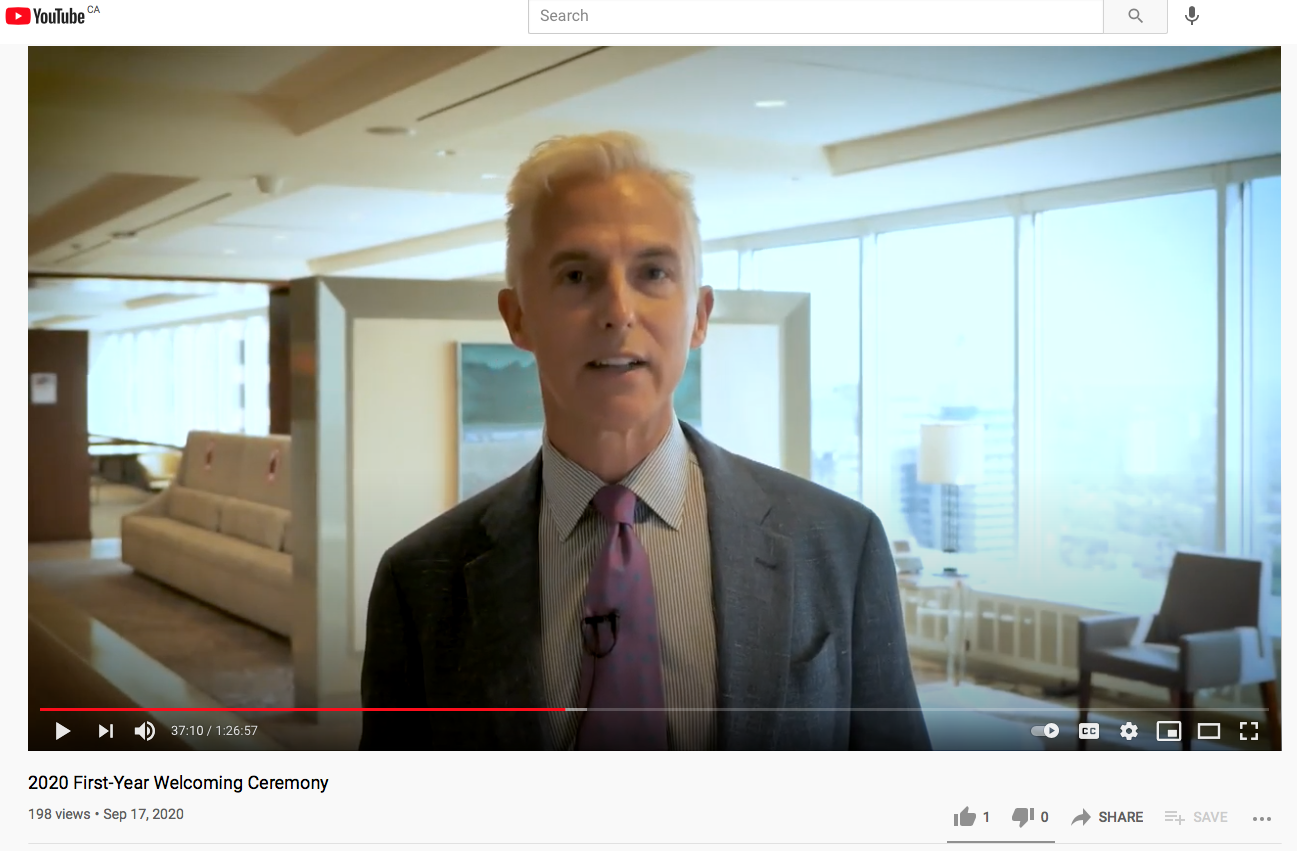
One of the areas immediately affected by the pandemic was events. Unfortunately, the Winter 2020 McKercher Lecture Series was cut short and alumni events planned for the spring in Toronto and Vancouver were cancelled.
When it became clear that fall classes would be held online, Katie Richard, alumni relations and events co-ordinator, needed to find a way to move the college’s largest event, the First-Year Welcoming Ceremony, online.
“I think the biggest challenge was making sure our incoming students, their family and friends, all felt that we celebrated this milestone with just as much importance and pride as we would have in person,” said Richard.
The event was designed to include a combination of pre-recorded and live remarks. The dean hosted the event live from Convocation Hall—the usual setting for the ceremony—while representatives from the judiciary, legal organizations and Burnet Duckworth and Palmer LLP (sponsors of the event), addressed students and their families.
College of Law alumni also met with small groups of first-year students following the event to answer questions related to their careers and law school experiences.
“Not only is the event important to our incoming students, but it helps us honour our alumni and engage them in a unique way,” explained Richard, adding that due to the online nature of the event, the college was able to include speakers and participants from outside Saskatchewan.
One of those was keynote speaker Brad Berg, a partner with Blakes LLP in Toronto and member of the college’s Dean’s Advisory Council.
“Brad touched on his personal story as member of the LGBTQ community, the challenges and opportunities presented by COVID, and the importance of using your privilege for good,” said Richard.
“We’re very thankful for all our speakers and our sponsor BD&P. They were more than happy to support our plans for hosting this event in an online format and were engaged right from the start.”
Recruitment efforts successfully adapt to new restraints
In a typical year, the college’s admissions and recruitment team would visit a number of local career fairs and travel across the country to lure potential students to USask Law. This year, recruitment entailed screen-to-screen rather than face-to-face interactions as well as a steep learning curve when it came to online platforms.
“The platforms were all new to me and so we did the best we could,” said Michelle Halvorson, admissions officer at the College of Law. “Prospective applicants had specific days they could attend the virtual fairs, look through the materials and chat either in a group or one-on-one.”
While there were challenges due to using new technologies and platforms, online recruitment did not appear to have a negative effect. In fact, based on the numbers, recruitments efforts were just as successful as previous years. As of Jan. 5, 2021, the college had received 164 more applications compared to the exact day in 2020.
The student experience in the virtual classroom
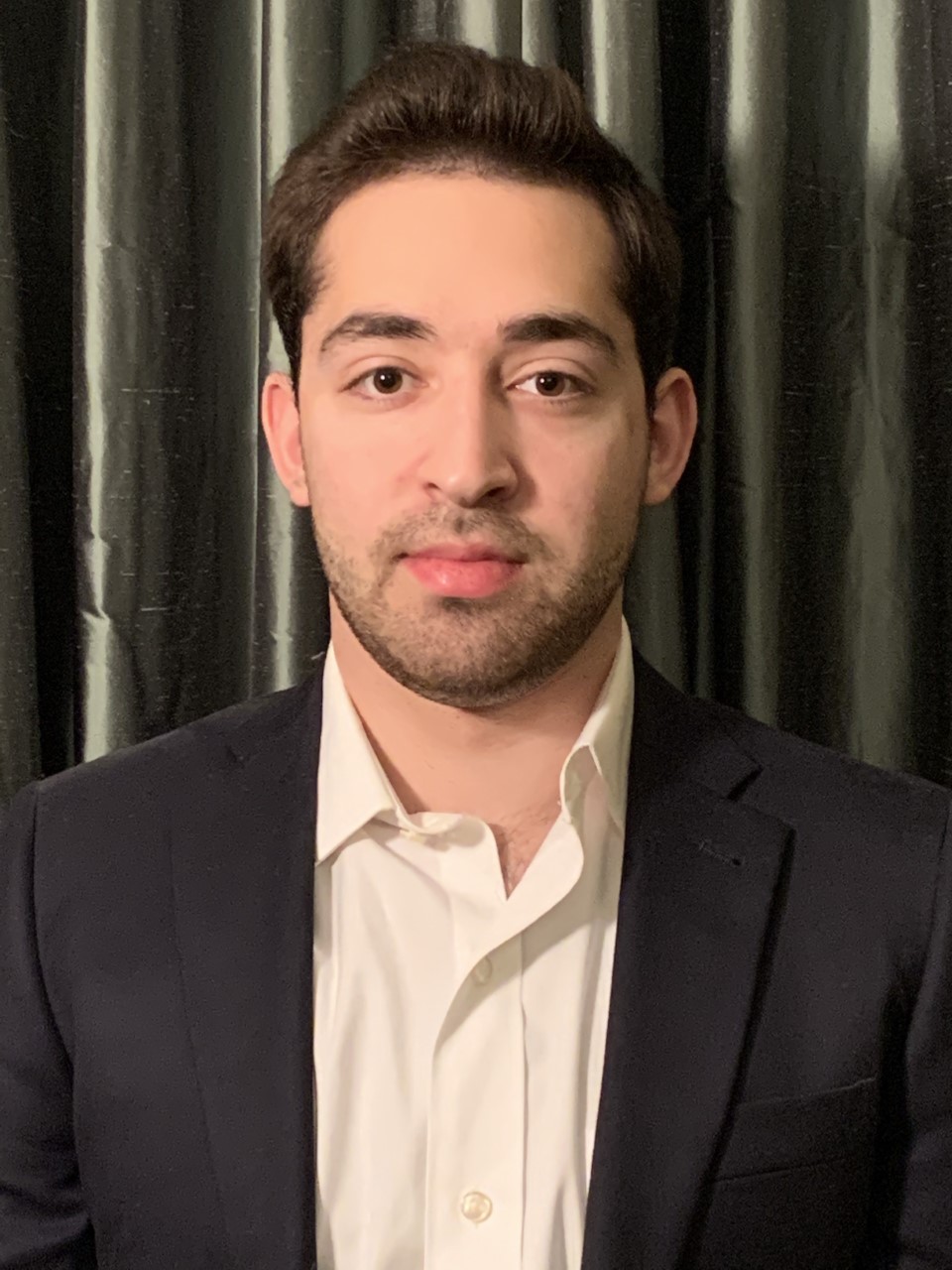
Arguably, law students have had to make the biggest adjustments due to college operations being moved online. The new learning environment has presented both challenges and opportunities that differ from one student to the next.
For Joel Hacker, a first-year student from Ottawa, the physical disconnect has been the biggest challenge. While he enjoys the flexibility of online learning, and commends the college for attempting to integrate out-of-town students, he believes there is no replacement for attending class in-person.
“I definitely miss the regular in-person interactions with fellow classmates and professors the most,” he said. “I didn’t realize how much I would miss these connections when it was first announced that classes would be held online.”
Hacker emphasized that learning from classmates by discussing concepts and studying in groups is an underrated element of higher education.
“Simply put, in an intense field of study like law, students value their peers’ opinions, and we love to learn from one another,” he said, adding that the opportunities for that are now limited.
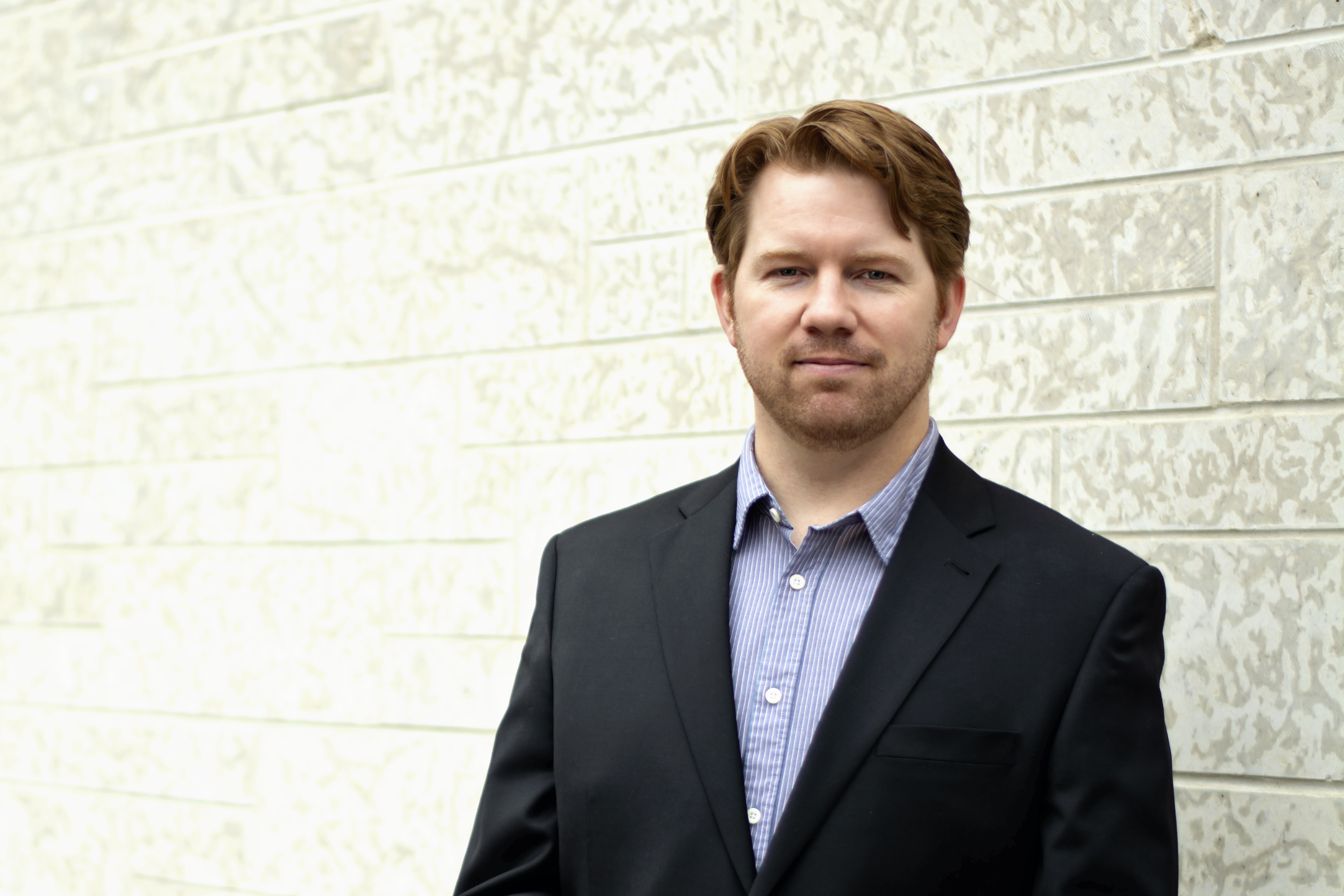
Third-year student Greg Dale agreed that the unintentional impromptu hallway discussions are greatly missed.
“Learning online has made it harder to connect with other students, and to know where you stand compared to other students,” he observed.
As a parent, Dale is grateful for the flexibility online classes have provided.
“Being at home has made the stress of getting kids and myself to school and spouse to work on time much more manageable,” said Dale. “When daily schedules conflict with class schedules, it is fantastic to be able to listen to lectures when there is time. It has allowed me to be a much more contributing member to the daily household duties and be available for kids activities.”
